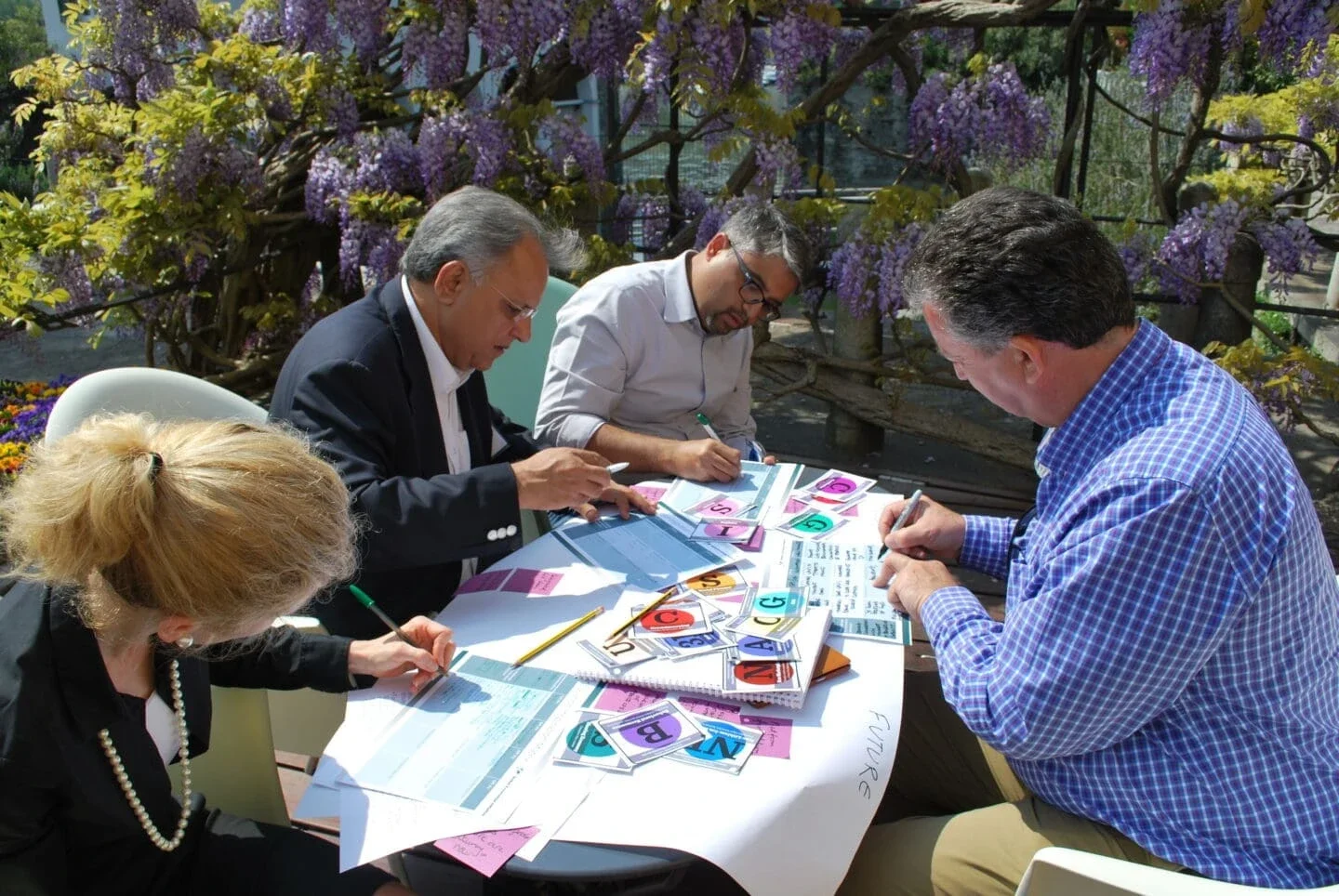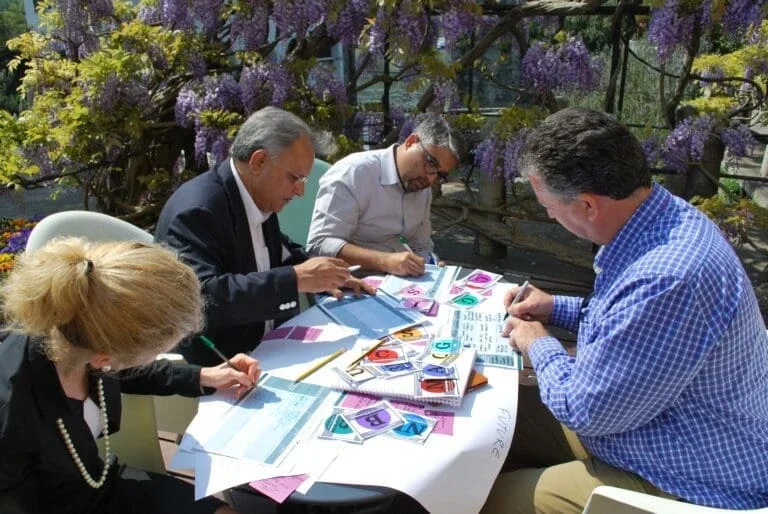Specifically, the 2023 Residency inspired:
- 0
books were accelerated and are on their way to publication
- 0
scholarly articles with breakthrough concepts were written and readied for public release
- 0
new works of arts were advanced, reflecting many different artistic disciplines including music, visual art, poetry, and film
- 0
news methods, strategies, and models were developed to reshape how we think about and address the critical challenges of our time
Leading artists made visible the stories of people who are often invisible and undervalued. Amanda Gorman worked on a novel to bring forward stories of Black women who have carved a path to justice and freedom. Feras Fayyad worked on making his award-winning documentary about the war in Syria into a TV series centering stories of resilience and recovery in the face of devastation and destruction.

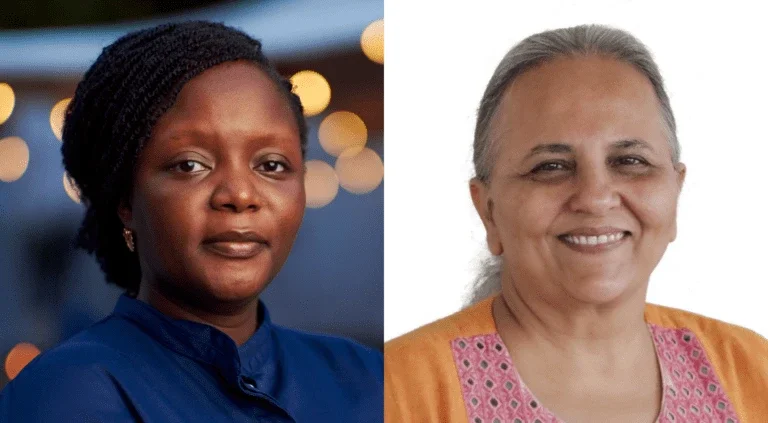
We hosted leaders working on breakthrough solutions to the climate crisis at the intersection of gender and climate. Chef Fatmata Binta, a food innovator in Africa, developed a strategy to elevate the grain fonio as a sustainable and drought resistant crop for women farmers that can become a diet staple for a changing climate in Africa. Reema Nanavaty, the pioneering leader of the Self-Employed Women’s Association (SEWA), advanced new work to support informal women workers to manage the impacts of a changing climate, including extreme heat, on their lives and livelihoods.
Some residents addressed the issue of care and caregiving as a critical challenge for gender justice and equality. Ai-jen Poo advanced work to transform how caregiving (in its many forms) is seen and how we assess what it contributes to the economy. Gabriella Gomez-Mont further developed her concept of ‘care blocks,’ imagining how urban space can be structured to support humans to care for each other and nature.
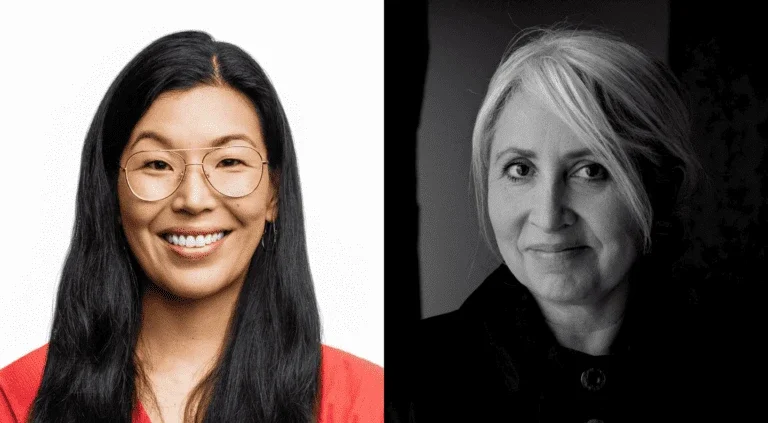
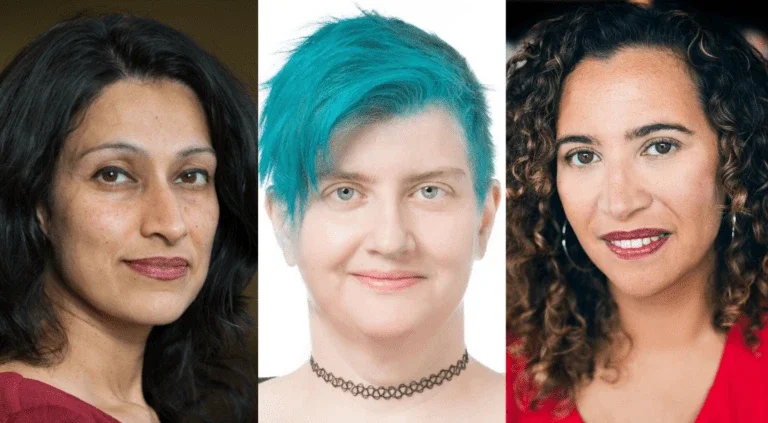
We convened leaders in AI and focused on designing the infrastructure and protocols to realize a just and inclusive AI future for everyone. Payal Arora advanced a set of cross-national policy and design recommendations for tech and non tech organizations to reduce algorithmic harms and build inclusive platforms that can empower and bring visibility to individuals in the Global South. Cathy O’Neil and Meredith Brossard developed standards for educational AI-enabled tools that protect against algorithmic bias and hold educational institutions accountable to principles of fairness and inclusion.
The 2023 cohort even included leading human rights practitioners and journalists who are championing the most marginalized and vulnerable communities. Kenneth Roth, reflecting on a long career at Human Rights Watch, wrote about the most impactful strategies available to defend people’s rights and dismantle systems of oppression. Molly O’Toole wrote about the new migrant underground and the black-market motivation behind human trafficking, uncovering the depravity and greed at play in the global migration crisis.

This is The Bellagio Center’s great legacy as the birthplace for new ideas and solutions, proving for over 60 years that connecting leaders across disciplines, geographies, and experience is a powerful recipe for innovation.
Sarah GeisenheimerVice President, Convenings & NetworksThe Rockefeller Foundation
Recent News
- Oct 05 2023CARE USA Launches Arts for Gender Equality Fellowship With Support From The Rockefeller Foundation
- Jul 27 2023The Rockefeller Foundation Announces New Head of Bellagio Center
- Jun 08 2023Women Political Leaders Gather in Bellagio, Italy for Summit Hosted by the Georgetown Institute for Women Peace and Security and The Rockefeller Foundation
